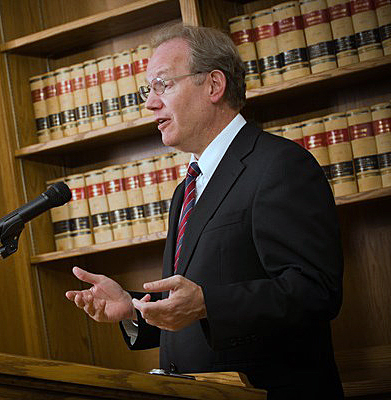





Professor David M. Kirkham presented the third lecture in the 2013 Religious Freedom Discussion Series, "Freedom of Conscience and the American Identity," on 10 July 2013 at Brigham Young University.
- The recording (wmv format) of the lecture is available here.
- Professor Kirkham's PowerPoint presentation is available here.
Professor Kirkham is Senior Fellow for Comparative Law and International Policy and Regional Advisor for the European Union and Council of Europe of the International Center for Law and Religion Studies and professor in the Department of Political Science, Brigham Young University. In his third annual contribution to the ICLRS Religious Freedom Discussion Series, Professor Kirkham, holder of a PhD in American Civilization as well as a juris doctorate, began to assess the influence of religious freedom on American cultural, intellectual, and political history, exploring questions on the relevance of contemporary freedom of conscience and religion protections to some of the largest concerns facing the United States—and perhaps the world—today.
Perspectives may vary, especially among non-Americans, as to whether the long-term impact America has had on the rest of the world has been a good one, but no one can deny that that impact has been significant. And even America's most hard-bitten critics would likely agree that the United States has played a positive role among the world's peoples throughout at least some, if not much of its history. Although many factors—both cultural and economic—have been cited over the decades to account for America's extraordinary influence, beyond tales of 17th-century pilgrims and puritans, often overlooked has been the contribution that freedom of conscience and religion have made, right up to present times, to the overall shaping of the American identity.
